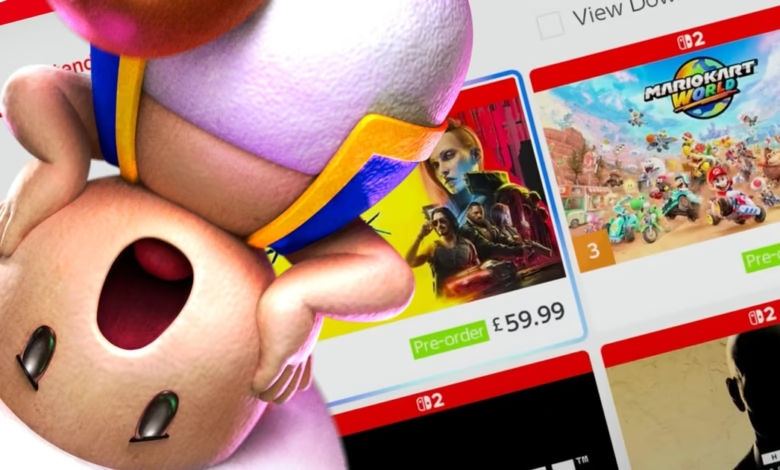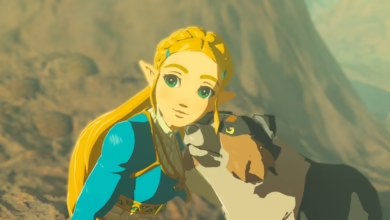Switch 2 Third-Party Sales Lag Despite Record Console Launch

▼ Summary
– Nintendo’s Switch 2 is its fastest-selling hardware ever, but third-party game sales have underperformed, with one publisher calling them “below our lowest estimates.”
– First-party titles dominated physical game sales, accounting for 48% in the UK (62% in the US) without the Mario Kart World bundle, and 86% in the UK with it included.
– Third-party games struggled despite big-name releases, though CD Projekt’s Cyberpunk 2077 performed well as the best-selling third-party title during launch.
– CD Projekt’s success is partly attributed to avoiding Nintendo’s Game Key Cards, opting for physical editions, which Nintendo players reportedly prefer.
– Slow third-party sales may be due to backward compatibility, lack of early press reviews, and many titles being ports of older games, but publishers remain hopeful as Nintendo actively supports third-party efforts.
The Nintendo Switch 2 has shattered sales records, becoming the company’s fastest-selling console to date. However, third-party publishers are facing unexpected challenges, with many reporting disappointing launch numbers despite the system’s strong start.
Industry analyst Chris Dring revealed that first-party titles dominated physical game sales in key markets. In the UK, 86% of physical purchases were Nintendo games when including the bundled Mario Kart World, while third-party releases accounted for just 14%. Even without the bundle, Nintendo still held 48% of UK sales and 62% in the US. Comparatively, the original Switch saw 89% first-party dominance at launch, suggesting slight improvement, but third-party performance remains underwhelming.
One anonymous publisher described their Switch 2 sales as “below our lowest estimates,” though exceptions exist. Cyberpunk 2077 emerged as the top-selling third-party title, likely due to CD Projekt’s decision to avoid Nintendo’s Game Key Cards, which require full downloads. The studio emphasized the value of physical editions, a sentiment echoed by many Nintendo fans.
Several factors may explain the sluggish third-party performance. Backward compatibility allows players to revisit older Switch games, reducing immediate demand for new releases. Additionally, limited review coverage, stemming from Nintendo’s embargo policies, and a reliance on ports of older titles have dampened enthusiasm. Many core gamers have already experienced these games on other platforms.
Despite the slow start, publishers remain optimistic. Nintendo is reportedly actively supporting third-party partnerships, with major releases like Madden 26 and Tony Hawk’s Pro Skater 3 + 4 on the horizon. Meanwhile, upcoming first-party heavyweights such as Donkey Kong Bananza and Pokémon Legends: Z-A could drive further hardware adoption, potentially boosting third-party sales in the long run.
The Switch 2’s early success highlights Nintendo’s enduring appeal, but third-party publishers will need strategic adjustments to thrive in this ecosystem. With a strong pipeline of exclusives and multiplatform titles, the console’s future looks promising, if developers can capture the audience’s attention.
(Source: Eurogamer)






